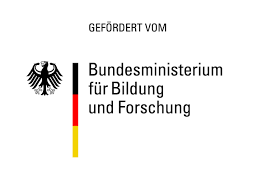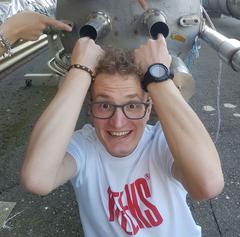Giovanni Mocellin, Doktorand am 3. Physikalischen Institut A der RWTH Aachen
Name: Giovanni Mocellin
Status: Doktorand
Institut: 3. Physikalisches Institut A, RWTH Aachen
- I decided to study particle physics because... since I was a young child I loved opening and disassembling objects to explore the working principles and the mechanisms. Getting stuck at the visible scale was not an option and understanding the fundaments of nature was an ever growing necessity. Particle physics gave me the chance of approaching my questions with extraordinary tools and fascinating answers.
- Currently I am working on… the upgrade of the CMS experiment with totally new detectors: the Gas Electron Multipliers (GEM). My contribution is primarily devoted to the assembly, qualification and validation of these outstanding GEMs.
- This is important because… GEMs will drastically improve the tracking and triggering performance of the CMS Muon System in the forward regions, also known as endcaps. For me, working in this project lets me experience challenges, issues and moments to rejoice that I could not even imagine when I started working as a physicist!
- A typical working day means… waking up hungry and eager to find something new to solve. Sometimes, the challenges come from the outside - the bugs in the code, the detectors that do not behave as one would imagine, the environment itself. Other times, they come from inside - new tools to be understood, working principles to be digested, and even time to time the motivation to dig deeper when a solution is not easy to find. All the day is then a very quick alternation among surprise, despair, solution, joy, food, and coffee, a lot of coffee!
- I work together with… a whole community distributed all over the globe, ranging from very young and enthusiastic students to well experienced and wise researchers and professors. This kind of working groups is what makes this life so interesting: not only made of learning and researching, but also sharing, meeting cultures and creating heterogenous and resourceful teams.
- The best thing about my job is... a perfect combination of two aspects: first, the possibility to face issues and to find innovative solutions on my own; second, never being alone in what I do - the team is always there to help, suggest, cheer up and, when needed, push and motivate to squeeze out the best.
- The downside of my job is... that if one does not like to proof himself against rapidly changing and evolving situations, this job could end up being stressful - fortunately, such aspects of this life is what makes me involved. If only I could express a wish, it would be to have stability in the long term.
- Being a member of the CMS Collaboration means for me... being injected in a high energy loop! Wordplay aside, the CMS Collaboration has always been to me like a large family - a 4000 people large family! Every individual brings his/her own knowledge and personality, and the puzzle gets big and colorful. Different pieces, with different colors and shapes, each one contributing to the overall success.
- My professional plans are... playing a role in this research field - as much as I can contribute. The short term plan would be to complete my studies up to the Doctoral degree. Then continue as a postdoc, building up a career that could hopefully bring me to a stable position as a researcher or a professor.
- Whenever I am not doing particle physics I... enjoy what life and nature offer! Mountains to be explored, roads to be cycled, food to taste and technology to accompany us in all our adventures: hard to get bored.
- The next book that I want to read is... “The hitchhiker's guide to the galaxy” by Douglas Adams. Sometimes the movie is not enough…
- Particle physicists are… quirky people and, because of this, very interesting!
- Without the LHC we would not have known... too easy to say “the Higgs boson"! I would emphasize another aspect, rather than pure science: we have learnt over time, and especially with the LHC, how to collaborate in large communities of scientists. From the one-man-discovery of the renaissance, we are now working in groups of thousands of people aiming at the same target; each and every one of us plays her/his role, contributing at the best of her/his abilities.

